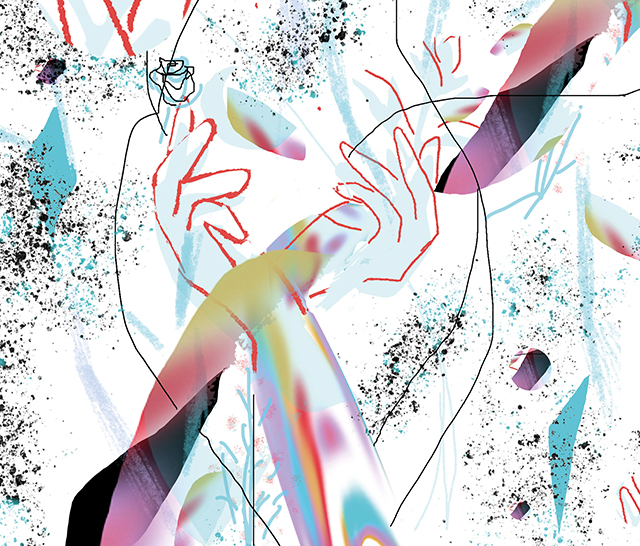
“Happiness can be found even in the darkest of times if one only remembers to turn on the light” said Albus Dumbledore, the voice of reason in J.K. Rowling’s infamous series of books that inspired a generation.
DCU student Niamh Cahill has spent her life constantly finding light switches. The future teacher has always found the best in life and in people, even during the darkest of days. Strangers will immediately notice her contagious smile and welcoming nature. However, DCU was not Niamh’s first college of choice growing up. 18-year-old Cahill was studying Theology and Arts in Maynooth. She loved going home at the weekends to catch up with her close-knit group of friends. However, something stalled Cahill’s plans of becoming a teacher and changed her life forever. That something is Anti- NMDA receptor encephalitis, a disease that occurs when the body’s own immune system attacks NMDA receptors in the brain.
A New York Times bestselling autobiography by New York Post writer Susannah Cahalan and the subsequent Netflix film starring Chloe Grace Moretz entitled ‘Brain on Fire’ has recently brought much-needed attention to the disease and the devastating effects it can have. Although Cahill experienced a similar experience to the one described in the film, she found it an enlightening experience.
“I’ve watched Brain on Fire. [I] had the pleasure of meeting Susannah, who the film is based on. If anything it was an education for me because it focuses on a time that I don’t remember. I thought it was really amazing and I suppose it was one of those moments where reality really hit me. It’s mad to think you went through so much of the same and don’t remember it,” she said.
Cahill was the fourth person in Ireland to be diagnosed with the form of Encephalitis. It can cause a wide range of symptoms, in her case psychosis and severe compromise to her brain function. The trouble started with a seizure at home just before she turned 19. “My leg started to jerk aggressively and within minutes I was on the ground having a grand malseizure,” she recalled.
A week in Portlaoise hospital followed and a series of tests that gave no definitive answers. The symptoms quickly became far scarier. “Over the next few weeks, I started to have intermittent stroke-like symptoms. My moods were all over the place. My parents had to put a baby monitor in my bedroom because I was so uneasy at night. My speech was really bad one minute and perfect the next.”
Niamh was transferred to Beaumount after a massive seizure for more tests that yet again proved to be of no avail. The doctors were stumped. “I went to status epilepticus which basically means basic seizures and was put on life constant.” She was put into an induced coma to buy the doctors much needed time and to give her organs a break. Doctors in America suggested that Cahill should be tested for a condition that had only been discovered the previous year- Anti NMDA Receptor Encephalitis. However, time was on nobody’s side.
“The test would take three months which they didn’t have so they did the test and treated me blindly. The test came back about three months later when I had finished my rehabilitation in Dun Laoghaire.”
A hazy time mixed with various dreams and hallucinations came to an end when Niamh woke up from her coma. “I don’t remember the day I woke up. I think I woke up and just lay there for days.” However, her parents can pinpoint the exact day the real Cahill started to return to the land of the living. “One day, the doctors came into the room and loads of them were around my bed and I just sat up and shook hands with every one of them. I don’t remember that but my Ma and Da always feel like it was a moment I came back.”
However, the hardest part of her journey was still to come, a navigation through strange and confusing times through the world of rehabilitation. “When I became more lucid I didn’t know what stage I was at life. Had no recollection of the previous summer. I knew people etc., but my short-term memory was badly affected so I’d be told something and I’d forget instantly. My speech was like a four/five-year old’s. My brain had been really compromised at that stage so I was a shadow of myself.” When Cahill finally completed the frustrating and difficult rehabilitation process, she watched her favourite films and TV shows again, for what felt like the first time.
Fast forward 10 years- she is back in college, continuing to follow her dream of becoming a teacher. She is often taken aback by all that happened to her and how her positive attitude, family and friends have helped her get to where she is today. “Sometimes, I can’t believe this is part of my life. I feared death so much when I was a kid and I just can’t believe that something like that was going to be part of my life.
Her advice to those struggling to find light in the darkest of times? “There’s always a light at the end of the tunnel. I truly believe that. There’s so much hardship out there and we are so
hard on ourselves but I deserted the idea of perfection a long time ago. I had a life plan and it got seriously messed around but it happened as it was supposed to happen.”
Róisín Cullen
Image Credit
